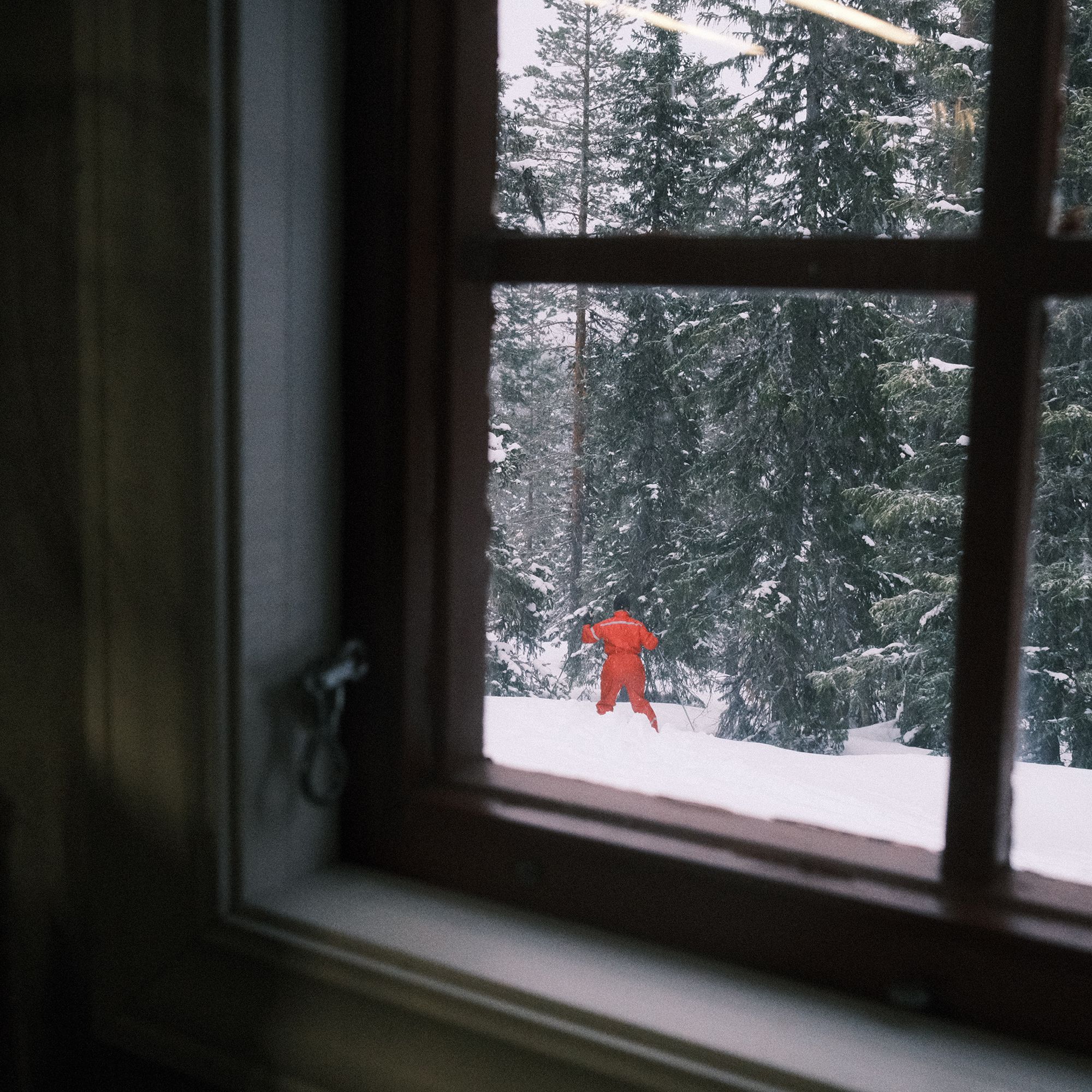
OUR BUSINESS MODEL
Our mission is to reduce clothing consumption. At the same time, we live off selling clothes. An obvious paradox.
You can read more about how we contribute to reducing clothing consumption below. To sum it up, we create systems that make it easier and more attractive for you to use our clothes longer. The best example of this is Use More +, where we help you with care and repairs as long as possible. You might be wondering how implementing these pricey investments is even economically possible.
We are able to run our business this way by making decisions that radically distinguish us from "every" other brand.
We never overproduce.
It is very normal to produce way too much of something, that later gets thrown away. That means lost income and an huge negative environmental impact.
We sell pretty much every garment without intermediaries.
A retailer typically needs 50% of what you pay to stay afloat. Many brands even have a second intermediary – agents that sell to the retailers. That east up a big chunk of the profits of a product.
We spend a relatively small amount on marketing and don't do outreach sales.
Marketing and sales work is very expensive and eats away at many companies economies.
We sell multiple items before they are produced via "on demand" and "crowdfunding" models.
The norm is that a company must pay for production before the products are sold. That means that the company often has to take out a loan, and we all know how expensive that is.
We do our best to avoid discounts.
More than 30% of the worlds clothing is sold at a discounted price. That creates bad margins for the company, and makes it easier for customers to buy things they don't need. Avoiding discounts isn't always as easy as we'd like. Sometimes we have B-grade items and samples gathering dust, and other times we have excess inventory, which causes financial challenges.
Last but not least: Our prices aren't low.
The industry is characterized by price pressure. That makes for bad margins and means that companies must focus on volume. Large volume means that one can pressure producers and partners to the max, resulting in miserable labor conditions and catastrophic environmental impact.
Simple equation - radical change
The equation is simple in our business model: A customer goes from buying five t-shirts to buying one t-shirt in the same period of time. NP earns more on the one t-shirt than volume based companies do on their t-shirt. In other words, we have a better margin per product. That means that we are reducing nature utilisation by 80% (1 vs 5 t-shirts), as well as still having the possibility of making a profit. But it doesn't stop there. A higher margin per product also makes better animal welfare, better labour conditions and stricter environmental requirements possible. For us, it also means that we can develop high quality clothing that is produced locally, and at the same time offer care and repairs of the products.
All together, this seemingly simple change from one to five t-shirts means that we can create radical change in how the world is run.
This means that you have to pay a little more per garment, and that we together take good care of it. Over time, you will save money on buying fewer products. That also means that you will have less products in your wardrobe after a while. But isn't that actually kind of nice?
A business model for all?
Now you are probably wondering why everyone doesn't do what we do. The short answer is that we have the same question.
The longer answer is probably that the industrial revolution has introduced mass production, and commercialism has rooted itself in two "truths":
1. People want as cheap products as possible, whatever the cost.
2. Motivating people to buy new things as often as possible is smart. The life of a product should be as short as possible.
Both of these factors drive up the volume and income for companies. The obvious losers are the planet and the workers who make the clothes. So our final question is: Don't we all lose in that version?
Our goal is that this model can show everyone that makes products that it is possible to manufacture smaller volumes with responsible supply chains and still make a better profit than traditional business models.
